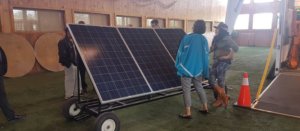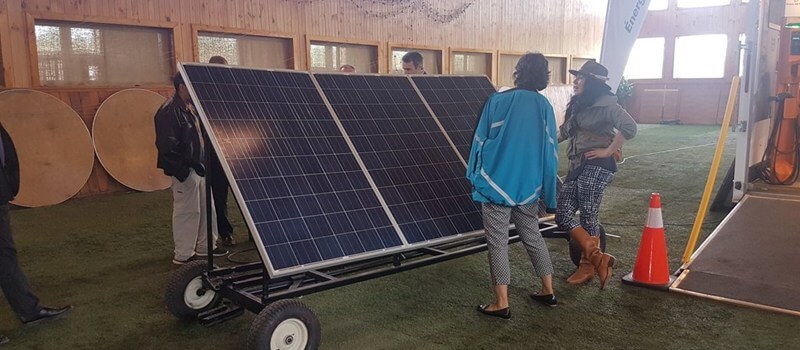
The second annual 20/20 Catalysts Program brought 20 indigenous participants from across Canada to Richibucto, N.B. last week to learn about ways to develop clean energy projects in their communities.
The three-month program brings First Nations, Metis, and Inuit leaders together to learn from Indigenous leaders who have completed their own renewable energy projects as well as from experts in the energy industry. The focus of the program is on topics like community engagement, business and project planning, and financing. Upon completion of the program, individuals will have the skills, tools and resources to maximize social and economic benefits their community will gain through participation in clean energy projects.
“It’s an Indigenous clean energy capacity building program,” said Eryn Stewart, program manager for the 20/20 Catalysts Program, in an interview with NB Power. “What this program is doing is essentially helping communities move their clean energy projects forward, which can be a huge support to them socially and economically. We have mentors from across the country who have already done projects of their own. Supporting these catalysts, these participants, in those initiatives is extremely valuable for the future of Canada going forward.”
There are currently more than 165 clean energy projects with indigenous involvement operating across Canada, and program participants will spread new ideas across the country to help with the creation of more renewable energy projects in the coming years.
The group toured the Mactaquac Generating Station and the NB Power Products and Services Lab on May 9 to learn about the current state of clean energy in New Brunswick. The second week of the program takes place in Canmore, Alta., in June and week three will be held in Wakefield, Que., in July.
NB Power has invited communities to participate in a program to integrate small scale renewable energy projects onto the provincial power grid. The Locally Owned Renewable Energy Small Scale Program (LORESS) has three components, including one specifically for First Nations renewable energy projects within the province. Applications for the First Nations portion of the program closed last April, while the application period for local entities, such as municipalities, cooperatives and not-for-profits, was recently extended to June 30.
We look forward to learning more about the First Nations, and local entities projects, that have been submitted.

